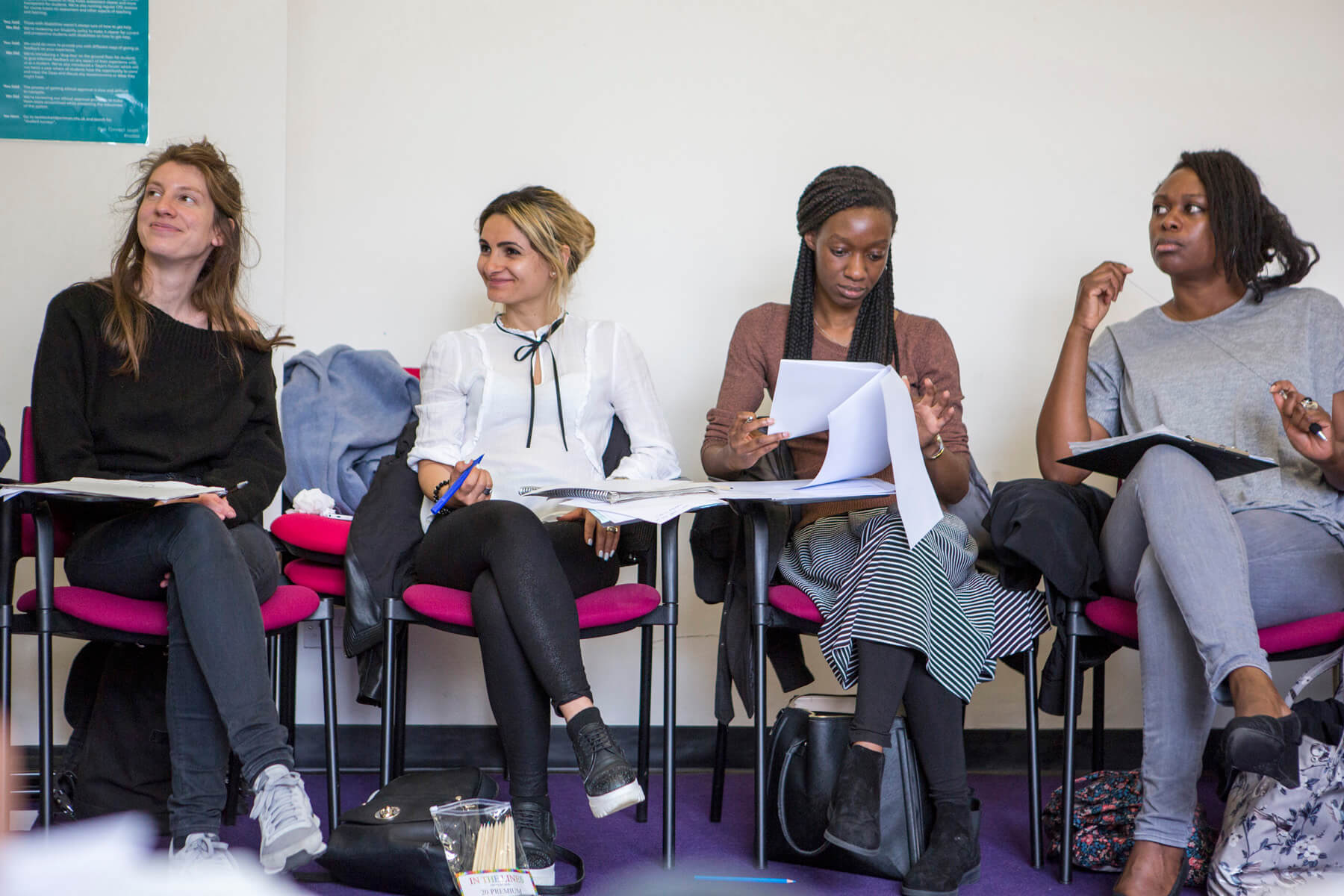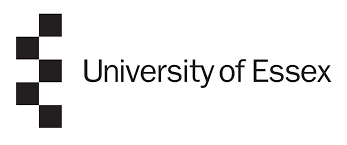
Consulting and leading in organisations: psychodynamic and systemic approaches (D10)
Understand organisational systems and acquire the skills to work more effectively as a leader, consultant or manager
This two-year course will develop you as a leader, consultant or manager by giving you a fuller understanding of the human dimensions of organisational systems and helping you to develop a ‘consultative stance’ to organisational dilemmas and opportunities. You will be helped to see the bigger picture, from different perspectives, and acquire the skills to work more effectively.
This course is also available to study online: Consulting and leading in organisations psychodynamic and systemic approaches (ED10, online). The face-to-face and online versions of the course are managed and taught as a single, integrated programme.
The deadline for applications to this course is provisionally set for Wednesday 31 July 2024. However, we encourage you to submit your application as soon as possible, as spaces are limited and can be competitive.
Please note: you may see the D10 course also referred to as SCMATP001 in communications from our application system.
About this course
This course combines experiential learning with the study of psychoanalytic and systemic theory in relation to organisations, bringing into view the complex emotional lives of contemporary organisations. You will learn how to track the flow of pressure around organisational systems, noting how pressure may move up and down hierarchies, or flow out into certain departments, roles or professions, or into ‘troublesome individuals’.
Theory seminars and webinars will introduce you to key concepts such as the individual unconscious, the group unconscious and the institutional unconscious. Contemporary papers and case studies will bring theory to life, exploring issues such as authority and power, organisational change and the politics of difference.
Race, intersectionality and difference are approached using a theoretical, individual and organisational lens, in order to explore how they impact organisational dynamics, and the capacity of leaders, managers and consultants to take up their roles.
A range of conceptual tools will develop your capacity to think critically and systemically about organisations. You will learn to map organisational systems and understand the effects of organisational structure on organisational dynamics and vice versa. You will be encouraged to think creatively ‘across the boundary’ between the conscious and unconscious aspects of organisational life, including those of the organisational system in which the course takes place.
Course structure
In the first year of the course, you will observe an organisation which will provide you with an invaluable opportunity to watch a group functioning when it is engaged in its usual task.
In your second year, you will undertake a consultancy, supervised in small supervision groups. You will also be expected to organise yourselves to plan and staff a consultancy intervention for year one students. The focus will be not only on the success or failure of this intervention but on the opportunity provided for learning about group processes that emerge when engaging with a client group.
Over the two years, you will participate in experiential groups, the aim of which is to learn how to observe the functioning of a group and to understand the dynamics which influence it, while also participating in the group. Experiential groups allow for the study of issues such as leadership, followership, rivalry, boundaries, group defences and cultural and role differences.
Between years one and two, all students take part in a group relations conference which is an intensive and immersive experience of group and institutional processes. The conference is, in effect, a temporary organisation created to enable you to study relatedness and relationships between groups, boundary dynamics and issues of delegated authority.
Who is this course for?
This course is for you if you are a manager, leader, consultant or coach who wants to gain insight into the unconscious processes that affect organisational systems.
Course details
In order to undertake this course, we ask that you:
- have a minimum of three years’ experience in your chosen profession
- have experience of direct involvement in the management, training or development of other professional workers, or engagement in consultative work for specific organisations
- have a first degree or equivalent, and/or professional experience commensurate with that qualification
Home
£7,870 per year (2024/25)
International
£15,740 per year (2024/25)
You will be charged course fees for each year of your course. If your course is longer than one year, the fees that you will be charged after the first year will be subject to an annual inflationary increase. This will either be an increase of 3% or the Consumer Price Inflation as on 1 September of that year – whichever is the greater. At its discretion, the Trust may determine a figure between these two rates. Please refer to our Student Fees & Refund Policy for further information.
Financial support may be available to help you fund your studies at the Tavistock and Portman NHS Foundation Trust.
Bursaries (2024/25)
This year, we are offering two bursaries, covering half (50%) of D10 course fees to new students from Black, Asian or Minority Ethnic / Global Majority backgrounds, who qualify for Home fees status.
Assessment
Over the two years of the master’s, assessment will be through four 3,000 word essays (two each year), two 2,000 essays (one each year) plus a dissertation of 14,000 words completed during the summer following year two.
There is also an element of continuous assessment provided by tutors and supervisors in the ‘Consulting and leading in practice’ module of the course, worth 50% of assessment for that module.
Attendance
- The course will take place across 11 Friday and Saturday teaching blocks per year (see dates in table below)
- There will be four 75 – 90 minute seminars of group work on each day of each block, with generous breaks provided
- Friday sessions will run from 9.45am to 5.00pm, UK time
- Saturday sessions will run from 9.30am to 4.30pm, UK time
In addition, there will be seven one-hour, student-led webinars on Wednesday evenings, from 6.30pm – 7.30pm, UK time. The webinars will be attended by both D10 (face-to-face) and ED10 (online) student cohorts. Year one webinar dates are listed below, and there will be a further four webinar dates in year two.
In year one, there will also be three online seminars for the observation module – to be scheduled by the tutor with the seminar group between January and April. In this module, students will find and conduct an organisational observation, made up of 10 one-hour observations.
Year one students are required to attend an in-person Group Relations Conference at the Tavistock Clinic, from 1 – 4 September 2025. Please note that this involves longer days, usually 09.00am – 7.00pm.
In year two, students negotiate and conduct an in-person organisational consultancy. Supervision will take place during teaching blocks, with an additional 11 mid-block supervision seminars scheduled by supervisors between January and June in the second year, at times which best suit individual supervision groups.
| Term | Session | Dates |
|---|---|---|
| Autumn 2024 | Block 1 | 4 and 5 October 2024 |
| Autumn 2024 | Block 2 | 25 and 26 October 2024 |
| Autumn 2024 | Block 3 | 15 and 16 November 2024 |
| Autumn 2024 | Block 4 | 13 and 14 December 2024 |
| Winter 2025 | Block 5 | 10 and 11 January 2025 |
| Winter 2025 | Block 6 | 7 and 8 February 2025 |
| Winter 2025 | Block 7 | 7 and 8 March 2025 |
| Spring 2025 | Block 8 | 4 and 5 April 2025 |
| Spring 2025 | Block 9 | 9 and 10 May 2025 |
| Spring 2025 | Block 10 | 6 and 7 June 2025 |
| Spring 2025 | Block 11 | 27 and 28 June 2025 |
Student-led webinars:
- Wednesday 16 October 2024
- Wednesday 6 November 2024
- Wednesday 4 December 2024
- Wednesday 29 January 2025
- Wednesday 26 February 2025
- Wednesday 30 April 2025
- Wednesday 28 May 2025
Please note: these webinar dates could be subject to change.
Graduates of this course have:
- come from a variety of professional backgrounds including healthcare, retail, the finance sector, technology and software development, sports and entertainment industries, charities and social services
- learned a new approach to working within and consulting to organisations, allowing them to understand unconscious group dynamics and how organisations function as systems with managed boundaries, hierarchies of roles, necessary inputs and outputs
- developed roles within organisations where they consult to processes of change, or common difficulties such as high staff turnover, evolving marketplaces or mergers
- explored how aspects of identity such as race, gender, sexuality, class or disability shape organisational functioning
- learned skills for improving diversity and inclusion in the workplace
- taken up senior management and executive leadership roles
- become self-employed as organisational consultants
- created a strong professional network and community of practice
- become ambassadors of the Tavistock approach in consultancy and the organisation
Lorem ipsum dolor sit amet, consectetur adipiscing elit. Ut elit tellus, luctus nec ullamcorper mattis, pulvinar dapibus leo.
Lorem ipsum dolor sit amet, consectetur adipiscing elit. Ut elit tellus, luctus nec ullamcorper mattis, pulvinar dapibus leo.
Lorem ipsum dolor sit amet, consectetur adipiscing elit. Ut elit tellus, luctus nec ullamcorper mattis, pulvinar dapibus leo.
Lorem ipsum dolor sit amet, consectetur adipiscing elit. Ut elit tellus, luctus nec ullamcorper mattis, pulvinar dapibus leo.
Lorem ipsum dolor sit amet, consectetur adipiscing elit. Ut elit tellus, luctus nec ullamcorper mattis, pulvinar dapibus leo.
Why study with us?
This course will give you a better understanding of yourself in a working context and a greater capacity to understand group processes that create functioning or dysfunctional organisations and teams.
It will enhance your capacity for appropriate task-related leadership and develop your ability to act effectively as a consultant, manager or leader in response to organisational issues.
Testimonials
Course facilitators
Validations and accreditations
This course is validated by the University of Essex.
Apply now
Start your application for this course.
Recommended courses
Explore courses to help build knowledge in this area
-
 CPD certificate
CPD certificate 
Leadership, followership and mental health (DAA006)
Explore courses to study beforehand
-
 CPD certificate
CPD certificate 
Leadership and management in the public and voluntary sectors: a systemic perspective (CPD23)
-
 CPD certificate
CPD certificate 
Understanding groups: reflective practice and work discussion (CPD44)
-
 CPD certificate
CPD certificate 
Working with and facilitating groups (CPD36)
-
 CPD certificate
CPD certificate 
Motivational interviewing: introductory module (CPD5)
Explore courses to study next
-
 Professional doctorate
Professional doctorate 
Advanced practice and research: consultation and the organisation (D10D)
-
 Trust certificate
Trust certificate 
Tavistock qualification in consultation (D10C)
